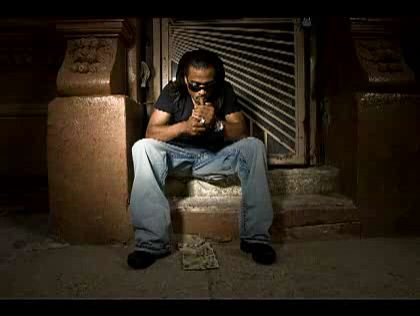Max B - Where Do I Go - Prod by Dame Grease
.... cont
All of the ingredients of Max's peculiar magic were here. The song has the feel of encroaching sobriety and lingering intoxication, bleary and melodic. There's a full minute of crooning before Max even starts rapping. The song's tone is bittersweet, almost melancholic vibe seems uniquely suited for the tragedy that would soon befall him. He addresses his real-life drama, venting with a casual insoucience. "Niggas try to take me but a nigga bailed out/1.5, the biggest bail-out," Max says at one point, a reference to the $1.5 million dollar bail he obtained by selling the rights to his publishing.
For many, the unbothered reserve of Max's delivery might make it hard to connect with him; certainly, the armor most rappers adapt can make them seem like one-dimensional action figures to those looking in from the outside. And all too often, they really are one-dimensional. But Max's genius came through his songcraft; he was able to suffuse his songs with a nuanced emotional context.
Max's words might speak to particular situations and circumstances, but they would give you little in terms of his emotional state. Instead, Max B was an actor on a stage of his own creation. His matter-of-fact statements about his conflicts with Jones, trouble with the law, and his mother's drug addiction are granted stark power, not through the particular lyrical details, but because the emotional truth of his music hid between rapper and song, a method of implying much deeper emotions through subtle understatement on an unforgettable musical canvas. --David Drake
All of the ingredients of Max's peculiar magic were here. The song has the feel of encroaching sobriety and lingering intoxication, bleary and melodic. There's a full minute of crooning before Max even starts rapping. The song's tone is bittersweet, almost melancholic vibe seems uniquely suited for the tragedy that would soon befall him. He addresses his real-life drama, venting with a casual insoucience. "Niggas try to take me but a nigga bailed out/1.5, the biggest bail-out," Max says at one point, a reference to the $1.5 million dollar bail he obtained by selling the rights to his publishing.
For many, the unbothered reserve of Max's delivery might make it hard to connect with him; certainly, the armor most rappers adapt can make them seem like one-dimensional action figures to those looking in from the outside. And all too often, they really are one-dimensional. But Max's genius came through his songcraft; he was able to suffuse his songs with a nuanced emotional context.
Max's words might speak to particular situations and circumstances, but they would give you little in terms of his emotional state. Instead, Max B was an actor on a stage of his own creation. His matter-of-fact statements about his conflicts with Jones, trouble with the law, and his mother's drug addiction are granted stark power, not through the particular lyrical details, but because the emotional truth of his music hid between rapper and song, a method of implying much deeper emotions through subtle understatement on an unforgettable musical canvas. --David Drake
|
|
|




